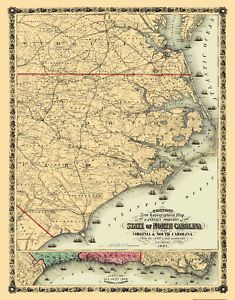 In a winter of discontent, deserters and dissenters are fair game in the Confederacy. From Texas to the Eastern seaboard, white southerners with wavering loyalties are caught in a tug of war playing out between lowered Confederate rifle barrels and the extended hand of U.S. President Abraham Lincoln. In the crossfire hangs liberty, property and even life for tens of thousands, if not more.
In a winter of discontent, deserters and dissenters are fair game in the Confederacy. From Texas to the Eastern seaboard, white southerners with wavering loyalties are caught in a tug of war playing out between lowered Confederate rifle barrels and the extended hand of U.S. President Abraham Lincoln. In the crossfire hangs liberty, property and even life for tens of thousands, if not more.
This war within the war reflects a Confederacy collapsing from within. Many, perhaps most, white Southern commoners, while supporters of black slavery, had been opposed to secession in the winter and spring months of 1861. Now, three years later, the Confederate nation is surrounded by a superior military force that has seized huge chunks of the South, effectively carving the Southern nation into a mosaic of faltering resistance. Lincoln’s recently-enacted offer of pardon and amnesty, in return for an oath of loyalty to the Union, is quite attractive in light of the increasing probability of Southern defeat. Yet pledging loyalty to the Union risks execution by Confederate authorities.
Hoping to quell a torrent of Confederate desertions and scare home front dissenters from accepting Lincoln’s offer, Confederate forces, taking advantage of the winter lull in the war against the North, have turned inward and are now roaming eastern North Carolina in search of escapees and Unionists. Many traitors have already been executed, and more hangings are expected. The Richmond Daily Dispatch follows these events with seeming eagerness, reporting in detail the brutality of the campaign, with no apparent apology.
Today’s paper thus sums up the hunt for Confederate dis-loyalists in eastern North Carolina:
The execution of seven deserters at Kinston, N. C., on the 13th, has been published. On the 16th thirteen more were banged. The correspondent of the Raleigh Confederate. says:
‘ J. S. Brock, Wm. Haddock, C. Huffman, Stephen Jones, A. J. Britton, J. I. Sumerien, William H. Daughtry, Lewis Taylor, Lewis Freeman, and Jno. Freeman, of Nethercutt’s battalion; and W. D. Jones, of Wright’s battalion, and Jos. Brock, of the 27th N. C. regiment, and C. R. Cuthrelt, of Latham’s battery, were all hanged in this place on yesterday, by order of court martial, for deserting their comrade and taking up arms on the enemy’s side. They all received the ordinance of baptism, according to the dictates of their own consciences, on the morning of their execution. Two were baptized by immersion by the Rev. Mr. Camp, of the Baptist Church, whilst the others were sprinkled and poured by the Rev. Mr. Paris, of General Hoke’s brigade, who were their spiritual advisers at the gallows.
’ The prisoners were accompanied to the place of execution by a large concourse of people, both citizens and soldiers, with a strong military escort.–They ascended the scaffold with a firm and elastic step, and met their fate with much fortitude and determination. The ropes were all suspended from the beam of the gallows, and Stephen Jones and Wm. H. Daughtry selected the ones by which they preferred to be hanged.
I am informed that three more deserters are to be hanged here in a few days — making in all 23 within the last two weeks, all of which were captured by our troops in the late expedition against Newbern. Old or(?) Haddook, father of the Haddock who was hanged here yesterday, and his son, were arrested for some cause, and brought to this town last night and lodged in the guard house.
Source: “More Executions of Deserters at Kinston,” Richmond Daily Dispatch, February 19, 1864 (link)


